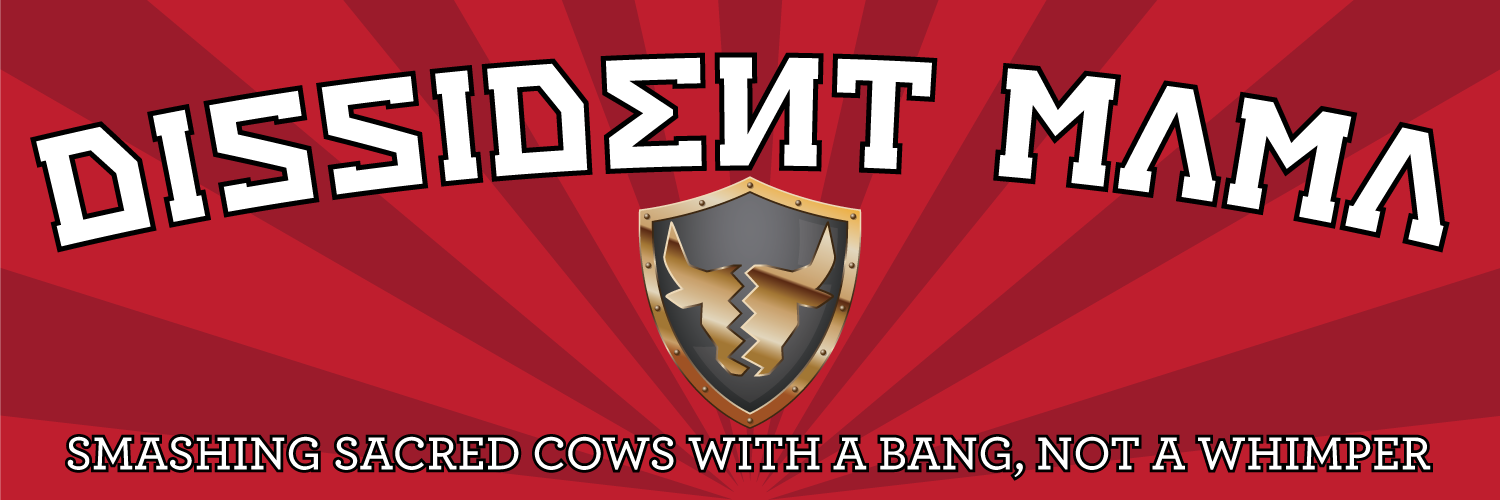The Orthodox Study Bible (OSB) defines reconciliation as “Making peace between enemies, especially the removal of hostility and barriers between humans and God, and between individuals, accomplished by Christ.” This takes work. A lot of work, particularly because it can’t be a one-sided endeavor.
In the case of individuals making peace with God and removing hostility and any barriers that stand between them and their Lord and Savior, well, that’s a free will issue on the part of each individual. God is always ready and His grace abounds.
But between individuals, some folks are just never ready to reconcile and sometimes even revel in the conflict, prolonging it for personal gain. This is the case with the Yankee Empire, as was explained in my last essay “Reconciliation: The grand bamboozle.”
Without honest dialog (including the key ingredients of offering and receiving apologies and forgiveness), self-reflection, and repentance, endeavoring toward reconciliation is pointless. Moreover, if the other party is hostile and prideful, it can be utterly baffling, counterproductive, and even downright dangerous.
“A man who prays for his enemies is a man without rancor.”
— St. Dorotheous of Gaza
The Yankee Empire has “self-anointed sinlessness” which drives its “mission to expurgate the sinfulness of others,” wrote James Rutledge Roesch. They have “forgotten the good of forgiveness, replacing it with the public punishment of the sinful.”
John Milton, governor of Florida for most of the War of Northern Aggression, described Yankees as having “developed a character so odious that death would be preferable to reunion with them.” We have all known individuals who are just as horrible and have surely felt just as impassioned by our own personal situations.
Within such toxic interpersonal relations, the odious party could be a family member, a friend, or a fellow Christian. Regardless of the kinship or affection, reconciliation efforts will be just as futile if both sides aren’t willing to do the heavy lifting of peace-making.


“Real reconciliation means complete and authentic acceptance of one another, despite sins, offenses, and transgressions,” writes Metropolitan Jonah Paffhausen. It’s “an authentic bond between persons in a spirit of love and humility” in a “spirit of forgiveness.”
However, “Humility does not mean bowing and scraping.” Rather, it’s about being “nakedly honest.”
In fact, “If someone does not want to be forgiven – often because he cannot or will not forgive himself – our forgiveness and compassion is like ‘burning coals heaped on his head,'” His Eminence notes, adding that “If the person has severely abused us or our trust, it may not be wise” to try to reconcile. Yet, “We can still forgive them, pray for them, and accept them, if only at a distance.”
“As health comes from bitter medicine,
so too does salvation of souls come from bitter experience.”
— St. Paisios the Athonite
So, acceptance is key: either “mutual acceptance of each other for who each one is” or individual acceptance that the relationship cannot be repaired. Both take a keen awareness and a highly realistic approach, but the latter is more difficult since it’s not the optimal outcome, which is of course harmony, restoration, and unification.
It’s a bitter pill, but the wisdom is necessary medicine. “Intimacy presupposes vulnerability,” Met. Jonah rightly states, but forgiveness “shatters the illusions and false objectifications that we have had of the other person.”
Just as we must understand the truth about America while keeping her at arm’s length but still in our prayers, we too must be able to recognize and forgive but also flee the froward man, even if he’s family or a former friend. After all, there’s a limit to what Christians can do in good conscience and over what we have any even an iota of control.
“Discretion shall preserve thee,
understanding shall keep thee:
To deliver thee from the way of the evil man,
from the man that speaketh froward things.”
— Proverbs 2:11-12
For 100-plus years, America has been a conflict-averse culture and altruistic to a fault. “Never discuss politics or religion in polite company” goes the old adage. Unfortunately, this non-communicative approach has become the standard for American citizens, who are now so conversation-averse that they call “hate speech” any topic they deem unseemly and/or already settled and “confrontational” those who seek mutual understanding.
Such a dishonest approach only seeks to undergird the civilizational sabotage and doubles down on the division. Consequently, this fosters resentment and bitterness, which Met. Jonah rightly warns are “cancer in the soul” and “self-alienation from God.” Be careful of this cyclical trap. It’s one into which you can easily and understandably fall, particularly when the situation involves a close relationship.


St. Silouan said “My brother is my life,” but sometimes our brothers and sisters aren’t who we think they are, making our high expectations of them an illusion, both in good times and in bad. Either way, we cannot force anyone into reconciliation, no matter how sincerely we may seek it, and attempting to do so is a snare of our enemies. It always takes two.
If restoration is impossible, the best course of action is to maintain a spirit of peace within yourself. Although human connection and Christian fellowship are vital, we must remember that it is Christ who is the measure of all things. So instead of getting mad about the senselessness of a relationship beyond repair, see it as an opportunity for self-mastery over your own passions in preparation for the age to come.
“He who is slow to anger is better than the mighty,
And he who rules his spirit than he who takes a city.”
— Proverbs 16:32
The loss of friendship or the realization that the bond was a bamboozle from the outset is good training for the clown world in which we find ourselves and the tribulation that lay ahead. I think we all need to toughen up to the fact that nothing should be a surprise. In other words, expect the craziest things to happen because they probably will. That is the new normal.
Intellectually, there is no rhyme or reason to the destruction of the true, good, and beautiful and the speed at which deviance results. Everything fixed seems to be broken. Friends are foe. Girl are boys. Men are women. Natives are foreigners. War is peace. Truth is a lie. The awake are asleep. Founders are forgotten. Hatreds are long yet memories are short.


This mass formation psychosis permeates every part of society and touches all aspects of personal life, from home to work to school and even church. If we’re collectively going to be “a people full of sins, an evil seed, lawless children,” as the Prophet Isaiah describes, this sickness is the predictable but pathetic result. We can all attest to this on some level.
For me personally, 2023 offered up example after example of the lunacy. The year was fraught with backbiting and betrayals, scapegoating and sniping, gossip and gaslighting, and a lot of post-modern theater and even a few threats. Seemed that every time I’d pull myself back up and dust off from one fall, there was someone or something to knock me back down again … and twice as hard!
At the time, much of it made me angry or broke my heart, or both. I would think, “Why is this happening? It’s all so senseless! How can people who call themselves good act like this? We should be pulling together, not creating factions and tearing each other apart! How can people I once trusted turn out to be untrustworthy? Why are people so unwilling do the work toward healing? Instead, they refuse to talk or run away and build their wall of acrimony even taller than before. Madness!”
“The psychological trials of dwellers in the last times will equal the physical trials of the martyrs. But in order to face these trials we must be living in a different world.”
— Fr. Seraphim Rose
Roesch utilized a Sophocles quote to elucidate the matter: “All men make mistakes, but a good man yields when he knows his course is wrong, and repairs the evil. The only crime is pride.”
“How can we reconcile with pride running amok?” I used to ponder. But then I realized that it is I who was giving in to the sin of pride. After all, I cannot control anyone else’s mind and heart, and mouth and actions any more than a camel can make it through the eye of a needle. Turns out that I too am not immune to the “sinful nation.”
“What good is it to man if he gains the whole world,
but if he loses his soul?”
— St. Nicholas of Serbia
“The wrath of man is unjust, ungracious, and severe,” notes the OSB. “It proceeds from uncontrolled anger, not from God’s judgment. For us to discern the righteousness of God requires patience, graciousness, and controlled passions.” This is the test. And sadly, I failed it due to my own spiritual vanity.
As the Prayer for Discernment says, “O Lord Jesus Christ our God … lead me all the days of my life, giving me to discern the times and their signs and to redeem time’s passage – for the days are evil – guiding me in the way that I should go, that I may ever say: I love thee, O Lord.” This is the wisdom.


We are “seasoned with fire” by being genuine in our faith and works. We must strive to be upright of heart despite the snares of the demons. This is our armor. Just like Stonewall Jackson prayed for reconciliation and raised the black flag, the “Confederate Joshua” understood that neither of these acts is mutually exclusive.
Jackson was spiritually disciplined and tried to be obedient to God, whether on the battlefield or on his death bed. “Pray for me,” he implored to his wife Anna at the end of his life. “But always remember in your prayers to use the petition, ‘Thy will be done.'” That is our weaponry: trusting God’s providence.
“We should not expect a life without trials or hazards … but we shouldn’t allow ourselves to be defeated or to give up. It’s not in peace and safety that people are made strong, but it’s when they face the storms of life and they overcome them,” notes Fr. John Whiteford.


“Though unkind circumstances are from the evil one,” the OSB explains, “trials – the world’s oppression – take place by God’s permission. The issue is not the trials but our response to them” revealing “where our hearts are” and “whether or not we are prepared for heaven.” Thus, trials, temptations, and suffering “are food for faith, which must grow or die.” Eat up.
Moreover, “Those who persecute us and who do not repent will face God’s just judgment,” so “we must ourselves remain upright of heart so that we don’t turn aside unto their crooked ways and then share in their punishment rather than in the reward that is promised to those who are faithful,” preaches Fr. John. Hold fast.


“There’s not much time of peace left … between now and the major events to come, so I think it’s good to spiritually prepare now for the potential tumultuous future coming up,” advises Dmitriy Kalyagin. He’s right. Time is short, so we must labor at the perfection of our own souls, mend our own ways, and cherish our true kith and like-minded kin.
As Jesus says in Matthew 18:8, “If your hand or foot causes you to sin, cut it off and cast it from you. It is better for you to enter into life lame or maimed, rather than having two hands or two feet, to be cast into everlasting fire.”
So while this “reference to mutilation is an illustration of decisive action to avoid sin,” says the OSB, it “also refers to harmful relationships that must be severed for the salvation of all the parties.” It most certainly takes two, y’all, even if that means not having two limbs, and the sooner we “of two minds” reconcile with that truth, the better.
Don’t be discouraged, but don’t get caught up in the confusion. Forgive all, but discern wisely. Take the time and do the work for the reconciliation which is possible and be honest about the situations which are impossible, using both as opportunities for removing the barriers between yourself and God. That is clarity and there could be no greater gift during such chaotic times as these.








Comments
Hi Mama,
I thought you might be interested.
He reminded me of your program.
All the best,
Chuck
Author
Not sure if you’ve seen my interview with Dr. Marcus. If not, do check it out. I guess he reminded you of my program since he’s been on it lol!
https://www.dissidentmama.net/dissident-mama-episode-72-dr-marcus-papadopoulos/
Hi Mama,
I see that the youtube link that I attached made my comment crash.
Check out his latest
Dr. Marcus on “why the attacks on Dixie concern us all”
Dr Marcus Papadopoulos
All the best,
Chuck
Author
Thank you, Charles. Yes, I saw this earlier. Dr. Marcus is certainly doing yeoman’s work!
“The Southern states were the first victims in history of the US Federal Government, and it is in Dixie where the US Government first began perpetrating cultural genocide …To understand what is happening today in the Western world, one must start in Dixie.”
https://youtu.be/hZ1RIJTEcsA
Well said, and a wonderful reminder, Miss Rebecca! We must forgive all, for our part, at least – and that is in obedience to Christ’s command to forgive other’s trespasses, as we are forgiven – AND that we can be free of the root of bitterness St. Paul talks about in Ephesians 4:26-27. BUT, indeed, we can only be responsible for ourselves, not for what others choose to do!
One of my seminary professors, Dr. Neil Anderson, used to tell us that forgiving others is not about making ourselves doormats, opening ourselves up to further abuse, but, again, OUR need to be free!
I know these things, but O how I need constant reminding, especially in these troubled times!
Thanks!
Author
I need to be reminded every single day, it seems. 🤣😭🙏
Not hanging on to “the root of bitterness” truly is freedom. It’s hard work to get there, but the reward is so sweet.
Thanks for writing, DD. You’re the best!